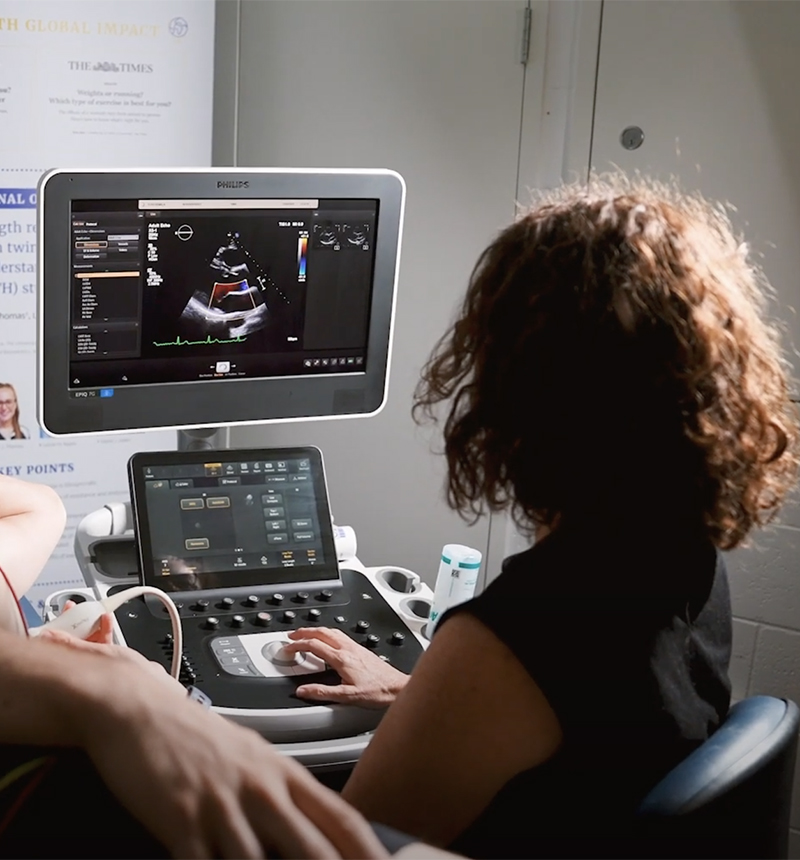Undergraduate
Bachelor of Human Sciences
Understand what it is to be human - from our structure, function, development and genetics, to adaptation, performance and evolution.
Majors available
Bachelor of Human Sciences (Pharmaceutical Health) and Doctor of Pharmacy
Start your pharmacy career with our four-year combined degree that includes practical training to become a registered intern pharmacist in Australia.
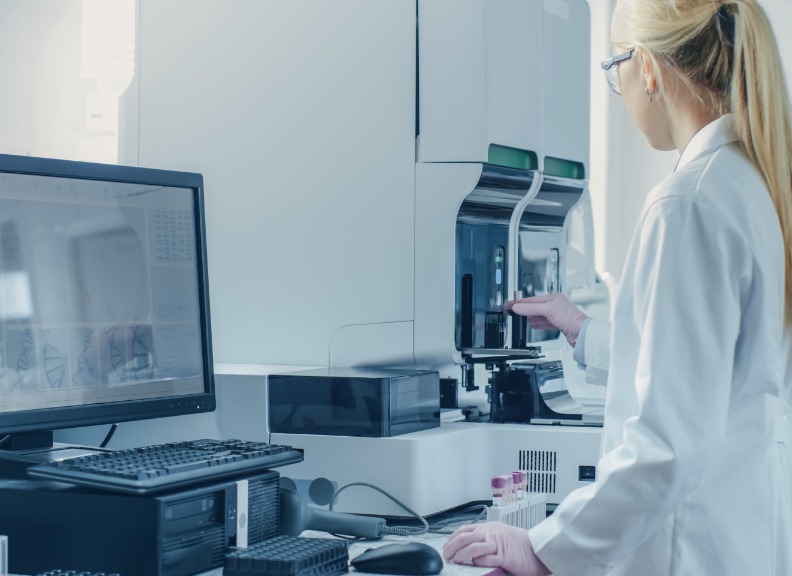
Bachelor of Human Sciences and Master of Bioinformatics
Understand what it is to be human and develop in demand computational and data analysis skills to manage and interpret the flood of new information being discovered in the fields of biology and medicine.
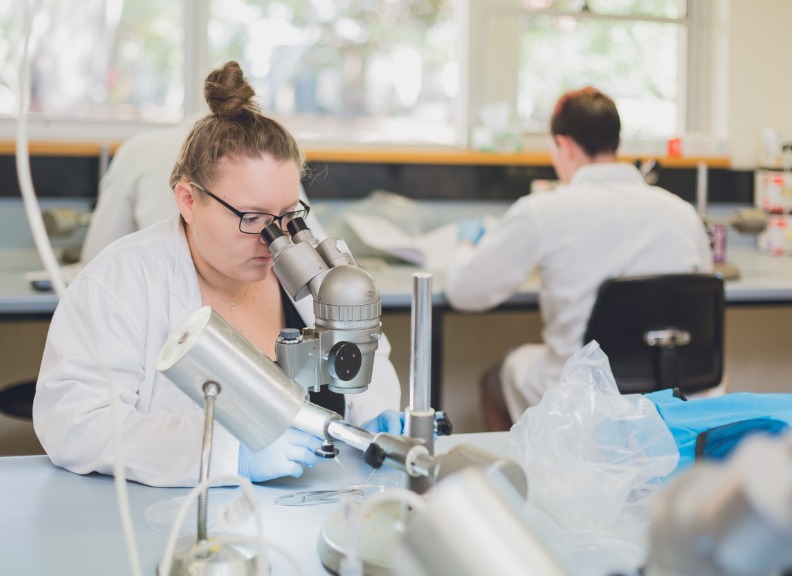
Bachelor of Human Sciences and Master of Biomedical Science
Gain both depth and breadth of knowledge about the human brain and behaviour, integrating genetics and public health to address neurological conditions and explore practical applications in clinical context.
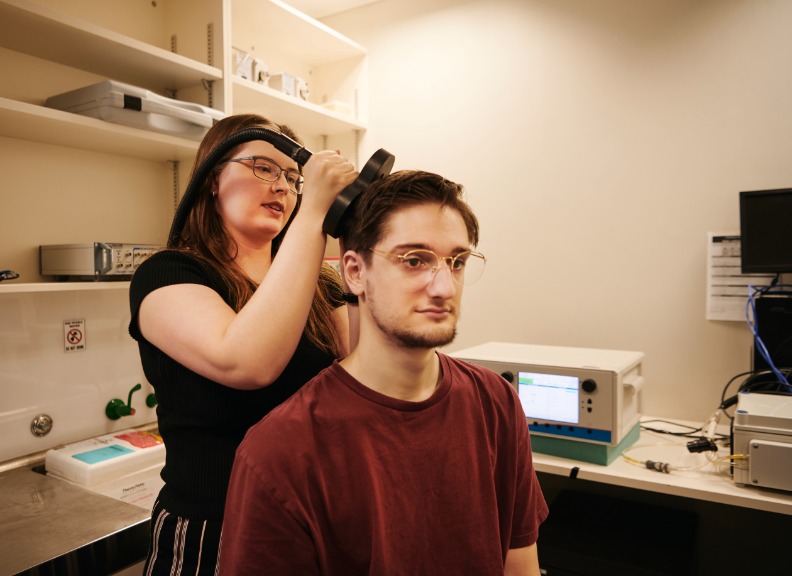
Human Science and Neuroscience (Extended Major)
Gain a unique insight into how human behaviour is influenced by genetic, developmental, ecological and cultural factors.
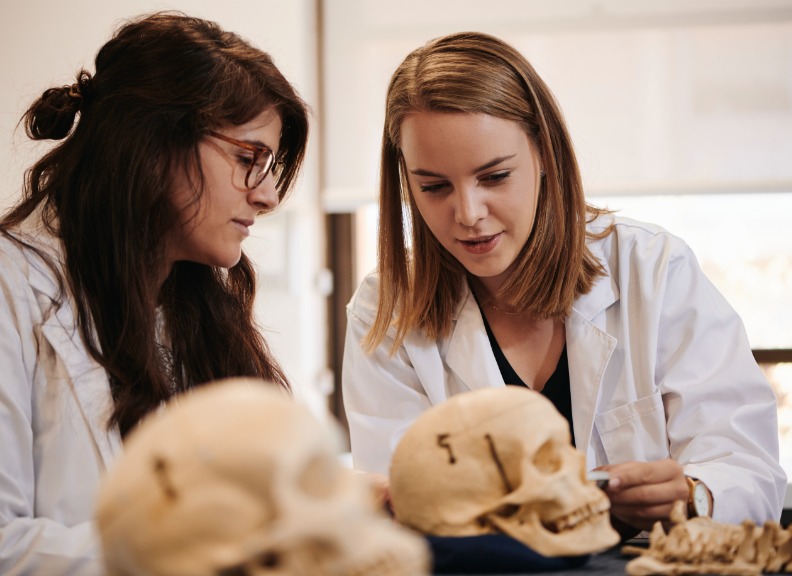
Human Sciences (Anatomy and Physiology) (Extended Major)
Gain a unique insight into how human form and function have adapted and acclimatised to our changing environment.
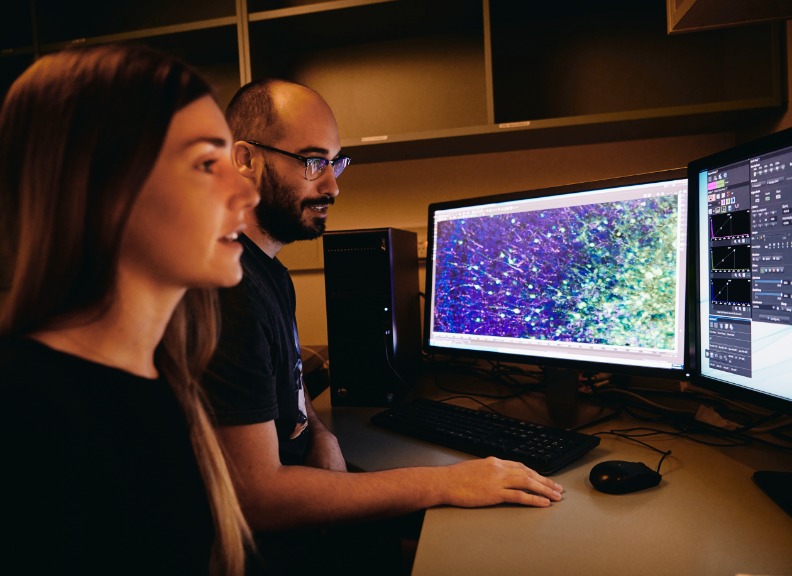
Human Sciences and Data Analytics (Extended Major)
This interdisciplinary degree will develop knowledge and skills to tackle complex biological issues that affect human societies.
The learning experience
Barry J Marshall Library
This library is UWA's hub for science students and researchers. Named after the University's Nobel Prize-winning professor, it has soundproofed study rooms, multimedia suites and a café on site.
Centre for Microscopy, Characterisation and Analysis
Through the Centre for Microscopy, Characterisation and Analysis, UWA enables research excellence by providing world-class microscopy and microanalysis facilities, including our unique pair of ion probes, the IMS 1280 and NanoSIMS 50, which offer world-exclusive analytical capabilities to Australian and international researchers.
Why choose UWA
Explore our campuses and facilities, get to know the history of our State’s oldest university and discover why a UWA degree can set you up for the careers of the future, not just the jobs of tomorrow.
Why choose UWA
Events
One of the best ways to find out about studying at UWA is to take part in the many events we offer future students.
Student Life
Discover what life’s really like at university, hear from current students in a variety of courses and learn about the student amenities and support services on offer at UWA.
Fees and scholarships
Domestic Student Fees
For Commonwealth-supported places, student contribution amounts are charged by unit, based on area of study. For a fee estimate, go to the Fee Calculator and select “I want to price my units”. Fees are subject to annual indexation. Refer to the Handbook to identify the units required. More information on how fees are calculated.
Scholarships
Scholarships are available to students from a diverse range of backgrounds, including academic achievement, financial need, educational disadvantage, leadership and community service, artistic or sporting achievements, and being from a rural or remote area.
International Student Fees
Onshore international students are charged an annual course fee, charged per credit point at a rate dependent on the course in which the student is enrolled. Annual course fees are calculated based on an annual study load. Check the handbook to confirm the annual study load for your course.
Find out more about international student tuition fees and visit the fee calculator for the relevant course fees.
Fees are subject to annual indexation.
Scholarships
Scholarships are available to students from a diverse range of backgrounds, including academic achievement, financial need, educational disadvantage, leadership and community service, artistic or sporting achievements, and being from a rural or remote area.
Careers and further study
Career opportunities
A degree in Human Science can lead to career opportunities such as:
- Bioinformatician
- Data analyst
- Health policy planner
Further study
Masters of Bioinformatics (via Human Sciences and Data Analytics major)
Masters of Biomedical Sciences (Neuroscience) (via Human Science and Neuroscience major)
Entry requirements
Admission requirements
To be considered for this course you need to:
- achieve a minimum ATAR of 80
- demonstrate English language competence
- Mathematics Methods ATAR or Mathematics Applications ATAR with a mathematics unit taken in the first year.
- Students without ATAR mathematics will take two first year mathematics units
You can view the prerequisites and recommended subjects for your chosen course here.
View our admission requirements for specific information, depending on your education history.
Admission entry to UWA
We offer a number of other pathways for you to gain entry into our undergraduate degrees if you do not meet the standard admission requirements. Learn more about our admission entry pathways.
If you don’t meet these entry requirements, you can apply for admission to the Bachelor of Science and subsequently apply to transfer into this course, subject to meeting course transfer requirements set out in the course rules.
About the Bachelor of Human Sciences
The Bachelor of Human Sciences degree provides students with the opportunity to develop fundamental interdisciplinary understanding of human function and behaviour (including variation) and the manner in which humans adapts to challenging and disruptive change. The degree houses a suite of majors that examine the biology of ‘being human’ in today’s world with an emphasis on how biology and behaviour of humans are influenced by genetic, developmental, ecological and cultural factors. Graduates will enhance skills needed for the future such as analytical thinking and innovation, critical thinking, and complex problem-solving. The suite of majors in the degree also develop other relevant transferable skills for effective communication and engagement with stakeholders in the relevant disciplines, and prepare students for honours in a broad range of areas in science.
Why study Human Sciences at UWA?
- The Bachelor of Human Sciences is the only specialised degree of its kind offered in Western Australia.
- Be a part of a world top 100 university. You'll be joining a network of passionate, resourceful, intelligent leaders. A community with a reputation and vision for leading positive change in our region and worldwide.
- Seek an education with a difference. With real industry connections, you’ll graduate with the skills and connections to jump right in to a career you love, and the wisdom to thrive in your field into the future.
Quick details
- 6
- Available
- 80
- Semester 1, Semester 2
- 3 Years Full-Time
- BP031
- Specialised Bachelor's Degree
- UWA (Crawley campus)
- 108367E
Work Integrated Learning
Work Integrated Learning (WIL) helps bridge the gap between theory and practice by providing opportunities for students to gain hands-on, practical industry relevant experience and for employers to help shape the graduates of tomorrow.
Imaging at Science
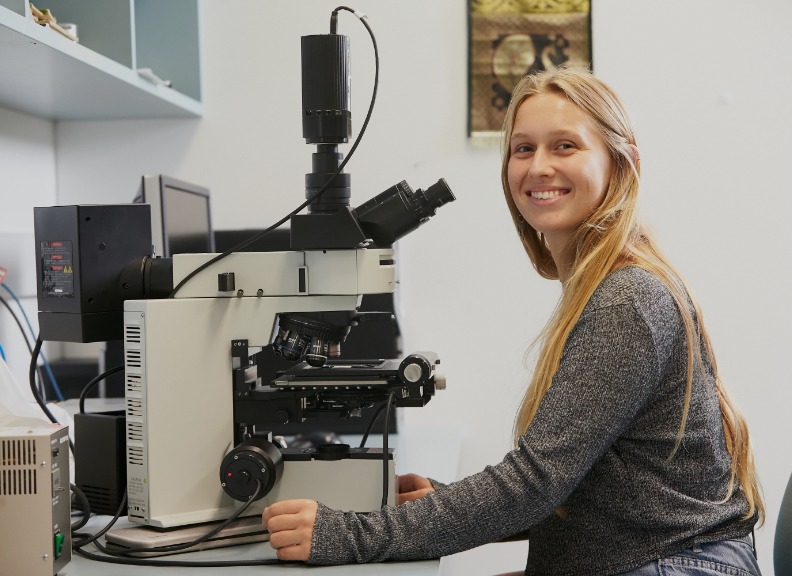
Specialised services in light microscopy, live cell imaging and confocal microscopy
Cell and Molecular Life
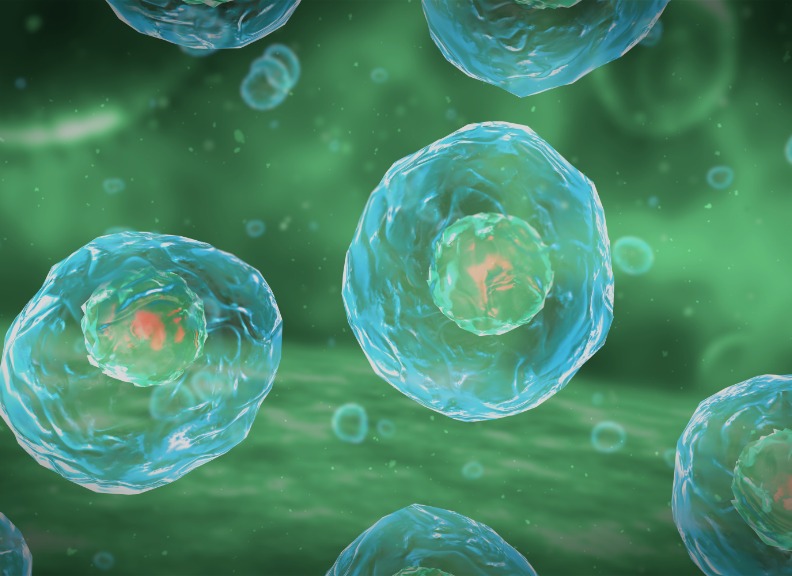
The Cell and Molecular Life Facility offers state-of-the-art technology to staff and students whose research investigates diverse insults affecting animal and human cells and tissues.


